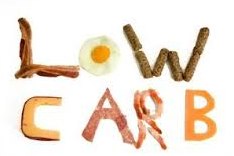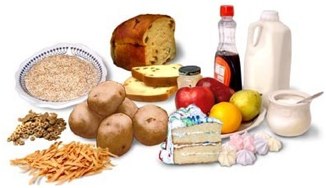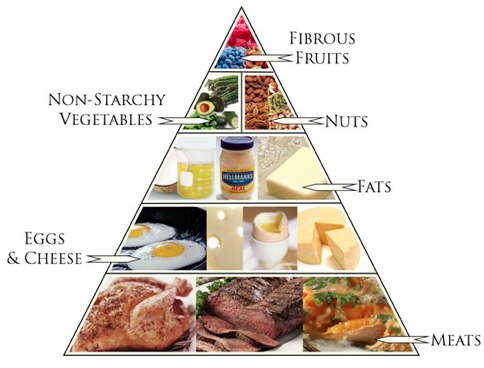 Diet plans come in many shapes and sizes, but the one that has gotten the most attention and is still a popular method of weight loss is a low carbohydrate diet.
Diet plans come in many shapes and sizes, but the one that has gotten the most attention and is still a popular method of weight loss is a low carbohydrate diet.
From moms and college students to athletes and figure competitors, going low carb has been the first plan of attack when trying to lose weight.
But what constitutes a low carb diet and how low should you go? These are all questions you need answered before deciding if this type of diet is right for you.
What are Carbohydrates
 Carbohydrates are used by your body to make glucose. Glucose is your body’s fuel which is turned into energy.
Carbohydrates are used by your body to make glucose. Glucose is your body’s fuel which is turned into energy.
Your body will either use glucose immediately (i.e., before exercise) or store it in your muscles and liver for when it needs it later.
If it is not used, it is stored as fat. When you drastically reduce your carb intake, the body goes into ketosis which means it burns fat for fuel. This results in your body needing fat, rather than carbs, to fuel itself and now relies on your fat stores as its main source of energy. These fat stores typically come from where your body stores most of its fat—your belly, thighs and hips.
When the body makes the adjustment to running on fat instead of carbs, you also become less hungry meaning you eat less and, thus, lose weight. However, if you eat a low carb diet for a long period of time, ketosis can work against you and lead to health problems like kidney failure, kidney stones, osteoporosis, high cholesterol, nausea and bad breath. This is due to the fact that low carb diets emphasize eating a lot of protein and fat.

Low Carbohydrate Diet
A low carbohydrate diet eliminates those foods that contain the highest amount of carbs. This includes pasta, breads, baked goods, potatoes, fruits, beans and grains. Most processed foods are also not recommended on a low carb diet as they contain excess amounts of sugar that contribute to high carb levels.
Instead, protein sources like fish, chicken, turkey and eggs are your main food choices as well as non-starchy vegetables like spinach, tomatoes, zucchini, asparagus and green beans.
A typical low carb diet plan allows anywhere between fifty and one-hundred and fifty grams of carbs per day. Some eliminate all carbs in the beginning of the plan and then allows some to slowly be added, usually in the form of fruit (ones that are low in sugar like citrus fruits and berries). People on low carb diets have said that they feel much better and, in some cases, have even reduced their risk of serious health issues like diabetes, metabolic syndrome and heart disease.
Choosing A Low Carb Diet
 If you choose to try a low carb diet, you need to know that there is an adjustment period that your body will go through to get used to eating this way.
If you choose to try a low carb diet, you need to know that there is an adjustment period that your body will go through to get used to eating this way.
You may begin to experience symptoms such as headaches, fatigue, constipation and weakness until your body adapts. However, if these problems do not go away or get worse, you may want to increase your carbohydrate consumption and speak with a doctor.
If you are an avid exerciser or athlete, you can expect a decrease in your level of performance on a low carb diet because your body is not used to relying on fat for fuel. You may even want to consume most of your carbs both before and after your training when your body needs it most and then eat the greater levels of protein and fat the remainder of the day.
 Keep in mind that eating a low carb diet is not forever. At some point, your body will react negatively to being deprived of carbohydrates for a long period of time. Your body is designed to use carbohydrates properly when they are consumed in proper amounts and at proper times (like before and after exercise).
Keep in mind that eating a low carb diet is not forever. At some point, your body will react negatively to being deprived of carbohydrates for a long period of time. Your body is designed to use carbohydrates properly when they are consumed in proper amounts and at proper times (like before and after exercise).
Many foods like fruit, starchy vegetables and beans have great health benefits and should be a part of your diet so you can take advantage of their vital nutrients. Once you reach your weight loss goals, as long as you are mindful of eating the right carbs (complex, not simple), you should be able to maintain your weight for the long-term.
Resources:
http://en.wikipedia.org/wiki/Carbohydrate
http://www.cdc.gov/nutrition/everyone/basics/carbs.html
http://www.hsph.harvard.edu/nutritionsource/carbohydrates
